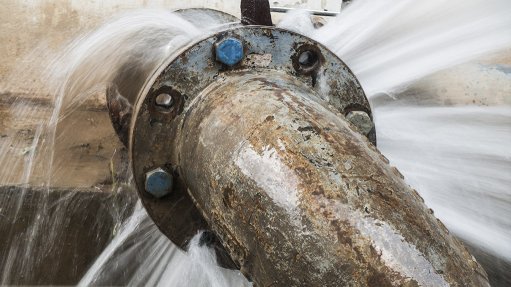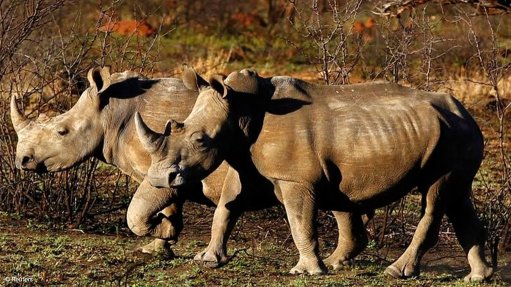Collateral damage
South Africa may be half a world away from the war theatre that Ukraine has become since its invasion by Russia on February 24, but the implications of that conflict – which, in my view, will be a drawn-out affair – will be felt in this country and on the rest of the continent for a while.
As for the prognosis that the conflict will be protracted, this is based on the likelihood of Russian forces taking longer than anticipated to secure Ukrainian cities, whose defenders are fighting back from street to street.
South Africa and other countries on the continent are already feeling the heat from the war in the form of higher fuel prices, which will trigger a wave of increases in the prices of goods and services as businesses pass fuel- related cost increases on to end-consumers.
The recent surge in forecourt prices is related to punitive Western sanctions, which have cut off oil supplies from Russia, the world’s largest oil exporter to global markets and the second-largest crude oil exporter behind Saudi Arabia. At the time of writing, fuel in South Africa’s inland regions retailed at R21.60/𝓵 of 95 octane petrol, R21.35/𝓵 of 93 octane petrol and R19.49/𝓵 of diesel, with the Automobile Association projecting increases to R23.87/𝓵, R23.54/𝓵 and R22.61/𝓵 respectively this month.
The Russia-Ukraine conflict will also have a huge impact on African countries from a food perspective. Between them, the former Soviet republics account for almost one-quarter of the world’s wheat exports and are significant suppliers of maize, barley and other grains as well. With Russia prevented by sanctions from exporting these commodities and Ukraine unable to do so because its seaports have been closed, their prices have gone through the roof. For example, the price of wheat, used to make bread and other baked products, has increased by more than 50% since the dramatic invasion.
Besides the food price inflation, the Russian-Ukraine war will also impact on food availability on the continent, which, according to United Nations Conference on Trade and Development statistics, imported $3.7-billion worth of wheat from Russia from 2018 to 2020, with imports of the same commodity from Ukraine during the same period valued at $1.4-billion. The African countries that are highly reliant on Russian and Ukrainian wheat imports are mostly in North Africa and East Africa, as well as a few countries that are already struggling with internal conflicts and precarious food security, a notable example being Somalia, which gets all its wheat from Russia and Ukraine. African powerhouses Nigeria and South Africa are also big importers of grains from the two countries.
As one South African economist has warned, the consequences for Africa will be dire if the conflict drags beyond the next few months. This is because countries usually stock grain supplies for three to five months.
Particularly for East Africa, the war could not have come at a worse time, given the severe drought that is ravaging the region, which has already driven food prices higher. Highlighting how dire the situation is, the South African economist warns: “Food prices are already high. If the war stretches, there will be millions of Africans that will be in hunger. We are already expecting millions of people to be in hunger in the areas affected by the drought, so the ongoing conflict will worsen that.”
The war will also impact on African exports. South Africa, for example, exports 14% of its apples and pears as well as 7% of its citrus produce to Russia, while Egypt and Tunisia also export fruit and vegetables to Russia.
So, while Africa is thousands of kilometres from the warring nations, its countries are feeling the impact of that war.
Article Enquiry
Email Article
Save Article
Feedback
To advertise email advertising@creamermedia.co.za or click here
Press Office
Announcements
What's On
Subscribe to improve your user experience...
Option 1 (equivalent of R125 a month):
Receive a weekly copy of Creamer Media's Engineering News & Mining Weekly magazine
(print copy for those in South Africa and e-magazine for those outside of South Africa)
Receive daily email newsletters
Access to full search results
Access archive of magazine back copies
Access to Projects in Progress
Access to ONE Research Report of your choice in PDF format
Option 2 (equivalent of R375 a month):
All benefits from Option 1
PLUS
Access to Creamer Media's Research Channel Africa for ALL Research Reports, in PDF format, on various industrial and mining sectors
including Electricity; Water; Energy Transition; Hydrogen; Roads, Rail and Ports; Coal; Gold; Platinum; Battery Metals; etc.
Already a subscriber?
Forgotten your password?
Receive weekly copy of Creamer Media's Engineering News & Mining Weekly magazine (print copy for those in South Africa and e-magazine for those outside of South Africa)
➕
Recieve daily email newsletters
➕
Access to full search results
➕
Access archive of magazine back copies
➕
Access to Projects in Progress
➕
Access to ONE Research Report of your choice in PDF format
RESEARCH CHANNEL AFRICA
R4500 (equivalent of R375 a month)
SUBSCRIBEAll benefits from Option 1
➕
Access to Creamer Media's Research Channel Africa for ALL Research Reports on various industrial and mining sectors, in PDF format, including on:
Electricity
➕
Water
➕
Energy Transition
➕
Hydrogen
➕
Roads, Rail and Ports
➕
Coal
➕
Gold
➕
Platinum
➕
Battery Metals
➕
etc.
Receive all benefits from Option 1 or Option 2 delivered to numerous people at your company
➕
Multiple User names and Passwords for simultaneous log-ins
➕
Intranet integration access to all in your organisation


















